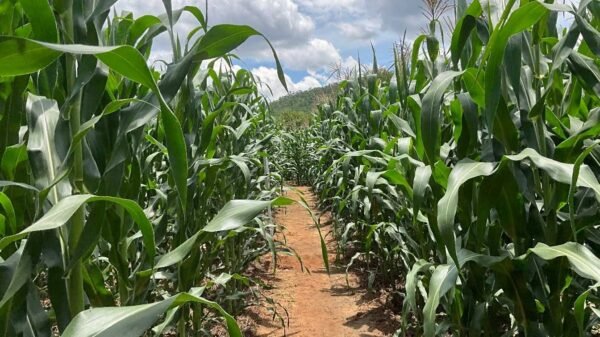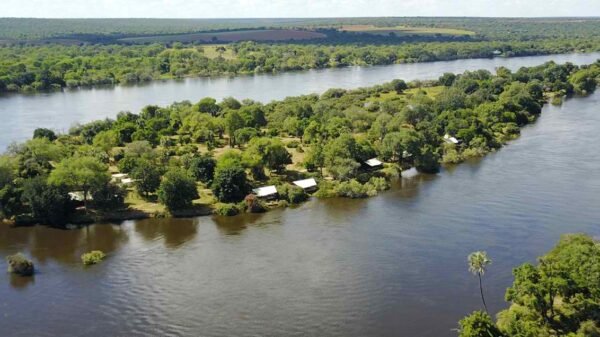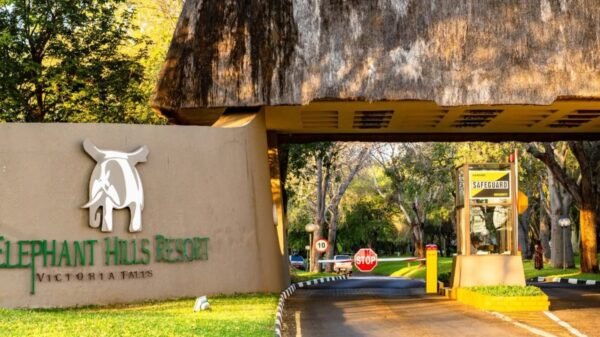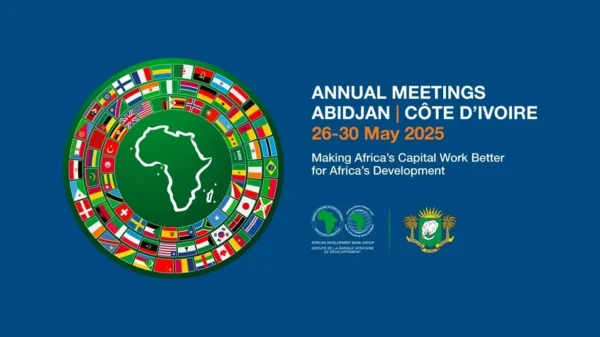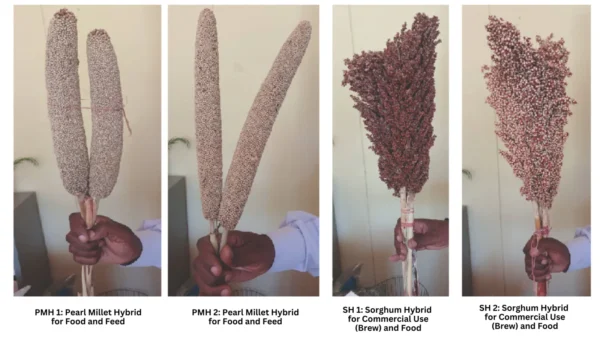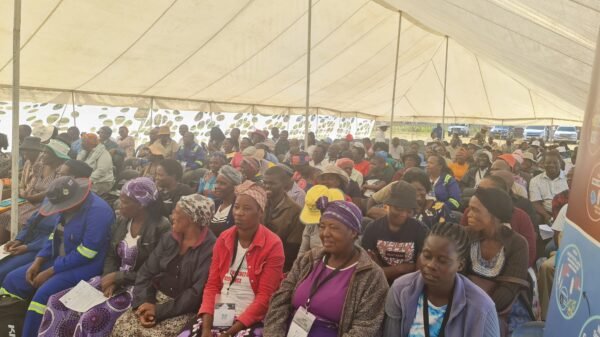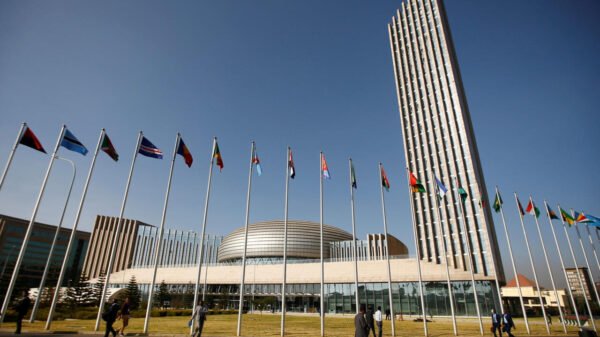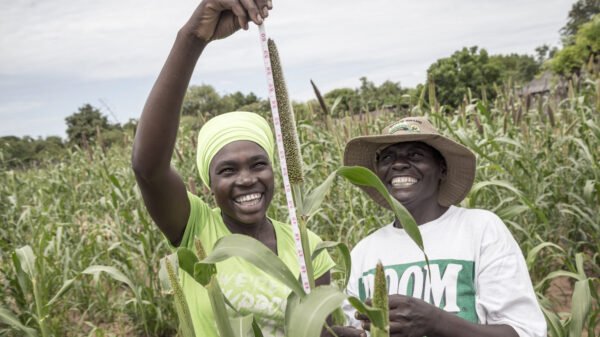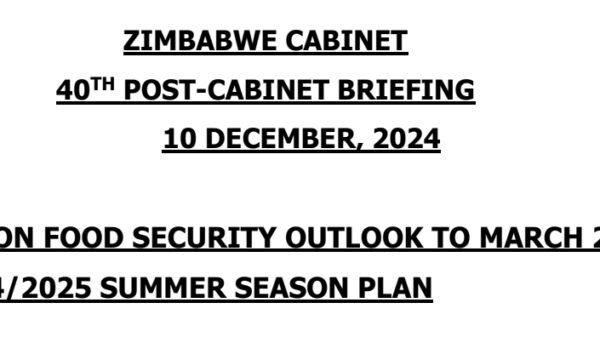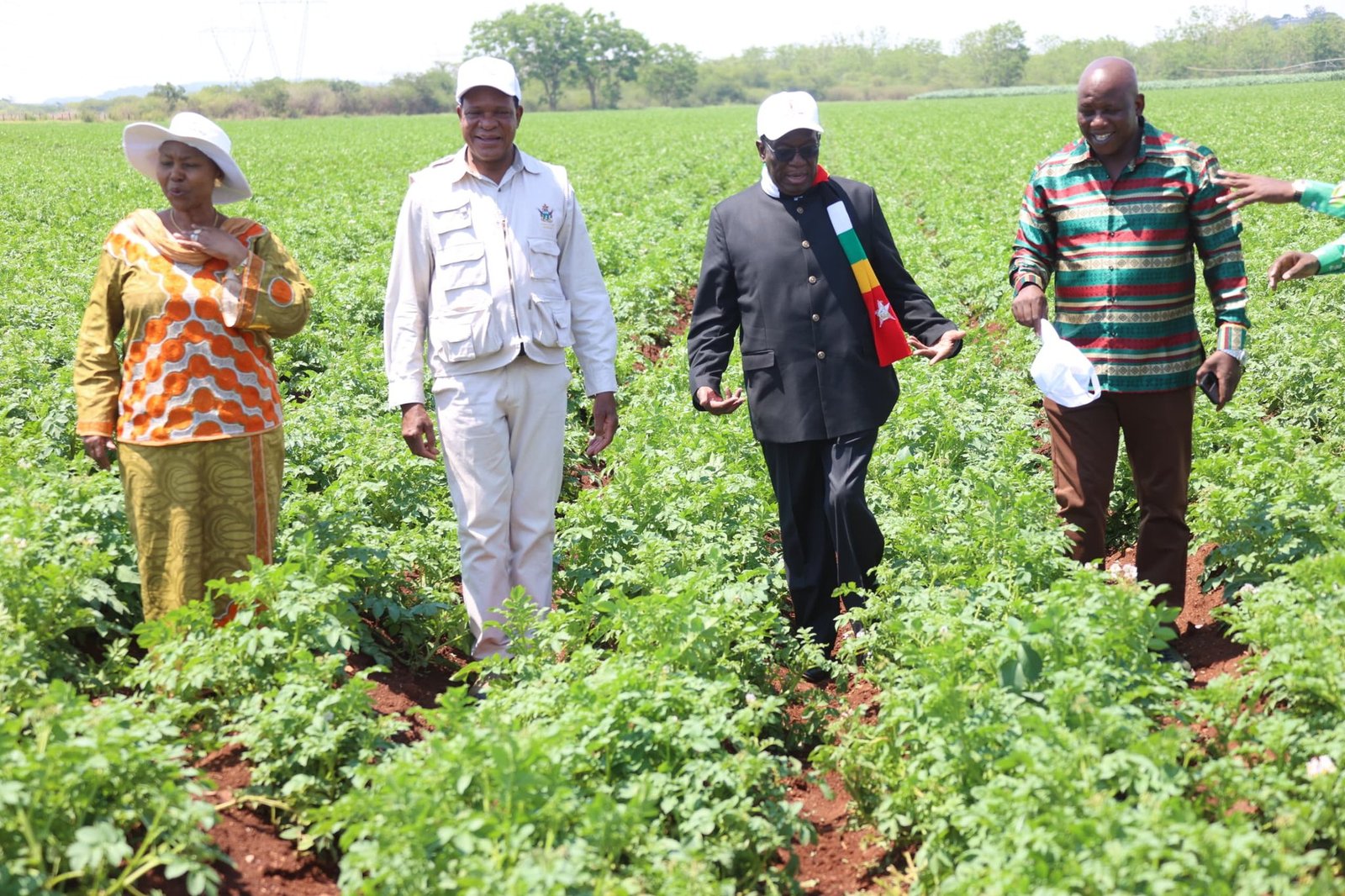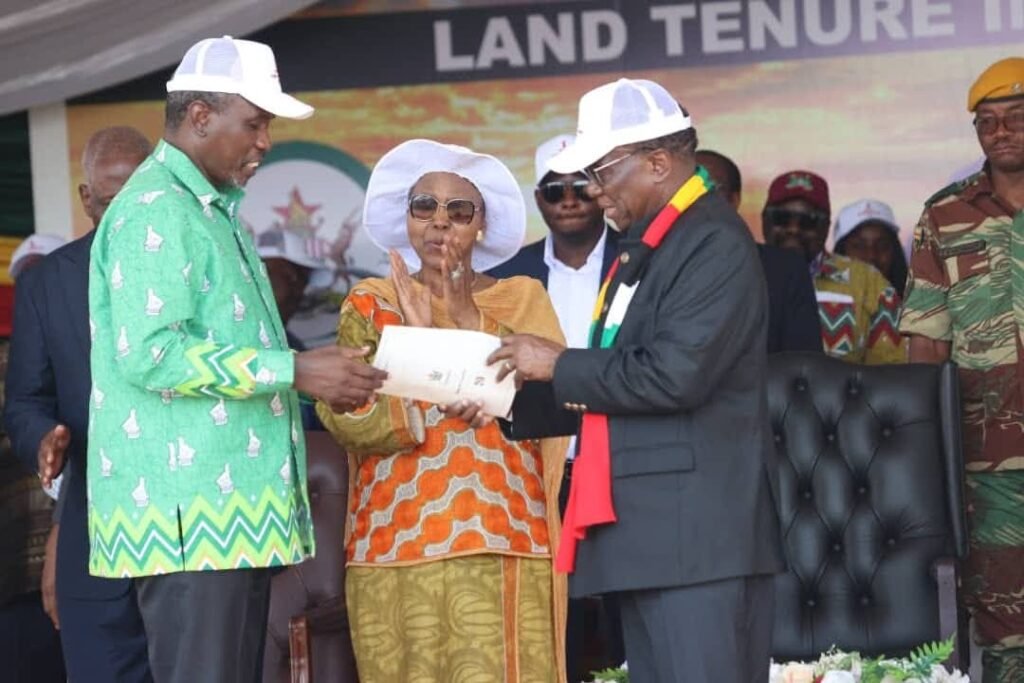
Above, Zimbabwean President Emmerson Mnangagwa presents a title deed to Zanu-PF oligarch Kuda Tagwirei during the launch. Picture credits: Information ministry.
By Brezh Malaba
ALMOST 25 years after launching the fast-track land reform programme, the Zimbabwean government today unveiled a Land Tenure Implementation Programme meant to bring finality to the land ownership conundrum and unlock financing for agriculture.
Stakeholders in the farming sector have been anxious to see what the new land tenure system would look like, following an unexpected cabinet announcement on 8 October 2024 laying out plans for a completely new tenure regime. According to that official statement, the new title would be bankable, unlocking collateral to support financing.
The expectation is that bankable and transferable title deeds will transform farmland from “dead capital” to viable assets protected by full property rights and institutions.
For decades, Zimbabwe’s sceptical bankers have refused to embrace 99-year leases issued to new farmers by the state, arguing that the permits were too risky to use as collateral for loans. Reasons they cited are that the leases were not registrable, transferable and bankable; in the event of a loan default, the bank would be unable to sell the land since it belonged to the state.
Political questions also swirled around the announcement of a new tenure programme. Did the influential veterans of the 1970s liberation war support this new course? Was the international community now calling the shots via the debt-resolution talks which are being delicately steered by the African Development Bank and former Mozambican president Joaquim Chissano? Were Zanu-PF’s internal ructions — with Mnangagwa’s allies controversially campaigning for the extension of his tenure of office beyond the constitutionally permitted two terms — suddenly creating a new self-preservation dynamic as the squabbling political elites sought closure to the long-standing land tenure headache? Was the broke government now desperate for some kind of solution after agreeing to pay US$3.5 billion to dispossessed white farmers? So many questions.
The dramatic announcement of a new land tenure thrust in October sparked a great deal of speculation as economic commentators wondered whether the champagne socialists who run Zanu-PF were finally buckling to neoliberal pressure and selling out the much-vaunted land revolution. Back in October, in a move calculated at calming frayed political nerves, Mnangagwa found it necessary to clarify that the new land tenure system would be implemented in a manner that prioritises the veterans of the liberation struggle, youths and women.
‘Zanu-PF is selling out’
Agrarian experts Dr Freedom Mazwi and Dr George Mudimu have recently warned against the dangers of elite capture, saying current attempts by the Zimbabwean authorities to introduce freehold title on state land could be fraught with complications.
“We posit that while freehold tenure thrives in several countries in the Global North, it’s not a solution for several countries in the Global South, especially African countries. Private tenure which is embedded in property rights is a Western concept with strong ties to the Roman-Dutch law and John Locke’s Two Treatises of Government in 1689. Private property rights aka freehold was weaponised to expropriate land from native Africans during colonialism. Through the freehold mechanism, white minority economic and political interests were entrenched, which fostered and entrenched inequalities and unequal development within African colonial states,” Mazwi and Mudimu argue.
What Mnangagwa said

President Emmerson Mnangagwa launched the Land Tenure Implementation Programme at his Precabe Farm near Kwekwe on 20 December 2024.
He presented title deeds to some farmers.
The previous day in Harare, Mnangagwa outlined to the 380th ordinary session of the Zanu-PF politburo the broad objectives of the new land tenure policy.
“Tomorrow, I will be launching the new Land Tenure Implementation Programme as we consolidate the gains of the our land reform. The programme is envisaged to bolster the land ownership model and enhance access to financing as well as to to encourage production and productivity,” he announced to the ruling party’s Soviet-style body.
Speaking at the launch, Mnangagwa emphasised the importance of land tenure security to the economy.
“Land tenure security is critically important to Zimbabwe’s economic growth and development. It encourages investment, improves agricultural production and productivity, and lifts many out of poverty into prosperity. With secure land tenure, our farmers can access credit facilities, purchase inputs and hire labour, ultimately increasing their yields and incomes,” he said.
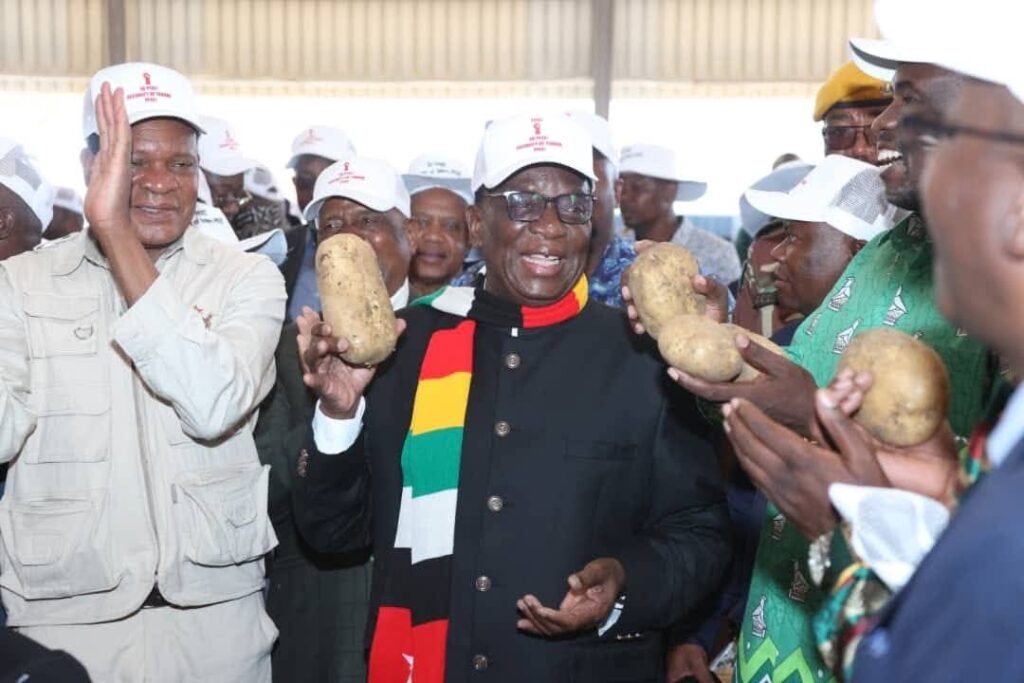
Professor Ian Scoones, who has extensively researched Zimbabwe’s land reform programme, has expressed doubt over the government’s proposed system which could create a completely free land tenure market.
“I must say that I remain sceptical of the proposal. In the past – together with Sam Moyo and others and following the work of Mandi Rukuni on President Mugabe’s Land Tenure Commission of the early 1990s – I have argued for the retention of a multiform tenure system, with different approaches suited to the context. I have argued against creating a completely free land market because of the risks of land concentration and elite capture…”
He added: “I have also made the case that offer letters, permits and leases – the existing mechanisms – could easily provide the basis for secure tenure if effectively implemented, with records updated. ‘Freehold title’ for some strange reason is seen as the gold standard in Zimbabwe (by former farmers and war vets alike), but has so many flaws, not least the implications for equity and justice.”
What Zimbabwe needs, more than anything at this juncture in its history, is “effective, transparent and functioning land administration system that provides for low-cost registration, regular audit and the collection of land tax and other revenues”, Scoones further explained.
Do dispossessed farmers have a say?
Economist and podcast host Tinashe Murapata has asked government spokesperson Nick Mangwana whether the former white farmers have signed a deed of cession before the issuance of new title deeds.
“Have the ex-farmers signed the deed of cession? Let’s do things properly and not create another crisis that will need to be undone and takes us back another 50 years.”
Mangwana replied: “This is being done correctly according to section 295 and section 289 of the Constitution.”
But Murapata swiftly retorted: “That means ex-white farmers must be compensated for improvements and sign deed of cession, that’s why I asked. It’s the signing of the deed of cession that will herald a new beginning. I urge we do things the right way.”
Murapata’s remarks were prompted by Mangwana’s listing of “5 reasons why ED [Mnangagwa] has nailed it”:
1. Security of Tenure: Title deeds provide farmers with secure ownership and control over their land, reducing the risk of eviction or land disputes. This security encourages farmers to invest in their land, improving productivity and efficiency.
2. Increased agricultural productivity: With secure title deeds, farmers are more likely to invest in their farms, adopt new technologies, and implement sustainable farming practices. This can lead to increased crop yields, improved food security, and enhanced economic growth.
3. Access to credit: Title deeds can be used as collateral to access credit from financial institutions. This enables farmers to invest in their farms, purchase inputs, and expand their operations.
4. Improved land management: Title deeds promote responsible land management practices, such as soil conservation, reforestation, and sustainable water management. This helps to maintain the long-term productivity of the land and reduces environmental degradation.
5. Reduced land disputes: Title deeds help to clarify land ownership and reduce the risk of land disputes. This promotes social stability, reduces conflicts, and encourages peaceful coexistence among communities.

